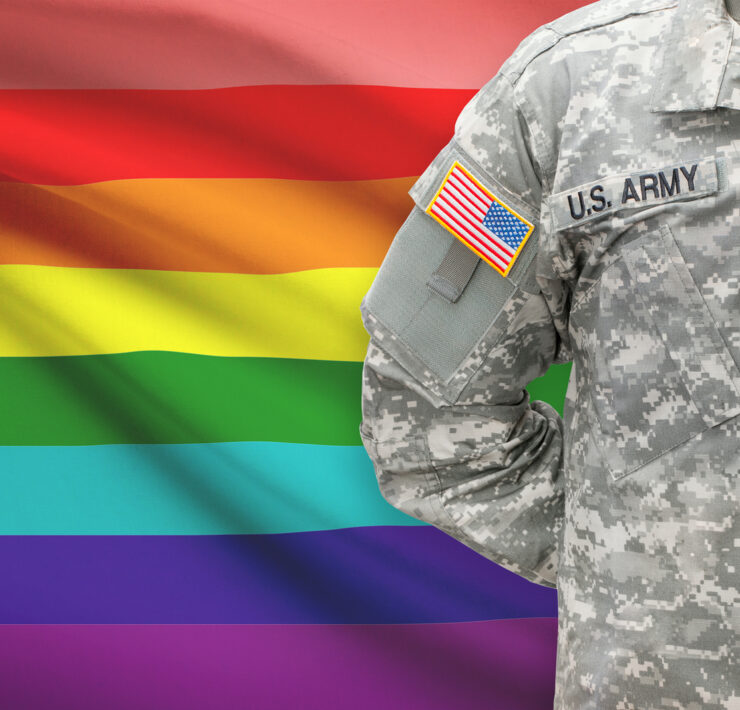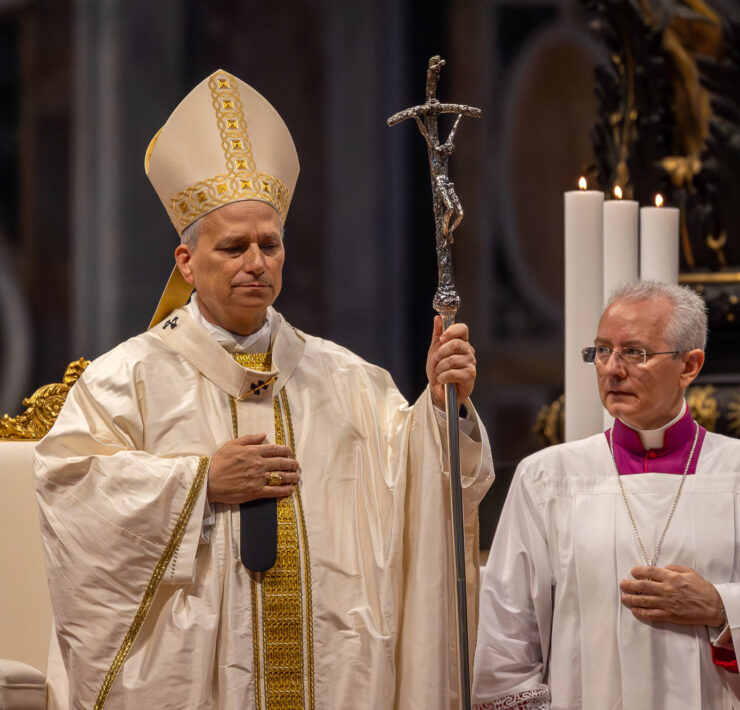We ‘F*cking Love’ Alt-Pop Star Zolita
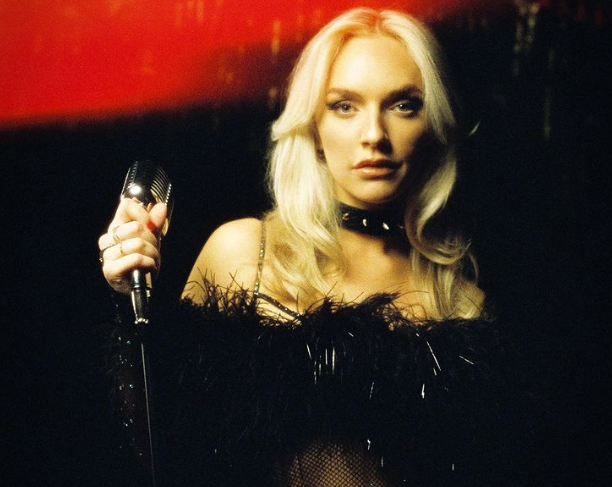
Denny Patterson is a St. Louis-based entertainment and lifestyle journalist…
Alt-pop sensation Zolita recently released her new single and video “I F*cking Love You,” the final installment of her viral cinematic trilogy, putting a brilliant twist on the nostalgia of 90s teen movies.
Following the previous two installments “Somebody I F*cked Once” (which sees high school cheerleader Zolita falling for the artsy outsider Gia, played by Tatchi Ringsby, ahead of prom) and “Single in September” (which brings the heartbreak of separation after graduation and a summer of love), “I F*cking Love You” jumps ahead five years. Despite being in different places in life, Zolita (now a big pop star) and Gia (a photographer) experience an unexpected and joyful moment of reconnection.
The trilogy rapidly gained more than 140 million global streams and was masterfully produced, directed, and edited by Zolita, whose passion for both music and filmmaking drove the creation of her colorful, vibrant music videos.
As a force for LGBTQ inclusivity and acceptance, Zolita is evolving into her new artistic chapter of music, which showcases LGBTQ relationships and stories through a universal lens. With limitless creative energy that brims with radiance, she will bring her music and message to LA Pride’s main stage on June 11.
OFM caught up with the star to talk more about her trilogy of sapphic bops, the evolution of her music and artistry, performing at Pride, and more.
Let’s begin by talking more about your latest single, “I F*cking Love You.” How has it been received?
It’s been received very well! I’m super excited about the reception of the song itself. I feel like a lot of the time, because my music is so backed up by the visuals, it’s nice to see that the song is being appreciated on its own, even without the video.
The track is the third and final installment of your cinematic trilogy, which began last year with “Somebody I F*cked Once.” What made you want to expand on the story?
When I saw the reaction to “Somebody I F*cked Once” and saw how fast it blew up and went viral, I just realized there was such a gap in representation for happy endings, specifically for queer woman. I just think people really fell in love with this storyline and the characters. I am a director and filmmaker as well, so I thought this was also a great way for that part of myself to shine as well. To expand that story, make it a trilogy, and essentially make a little TV show out of music videos.
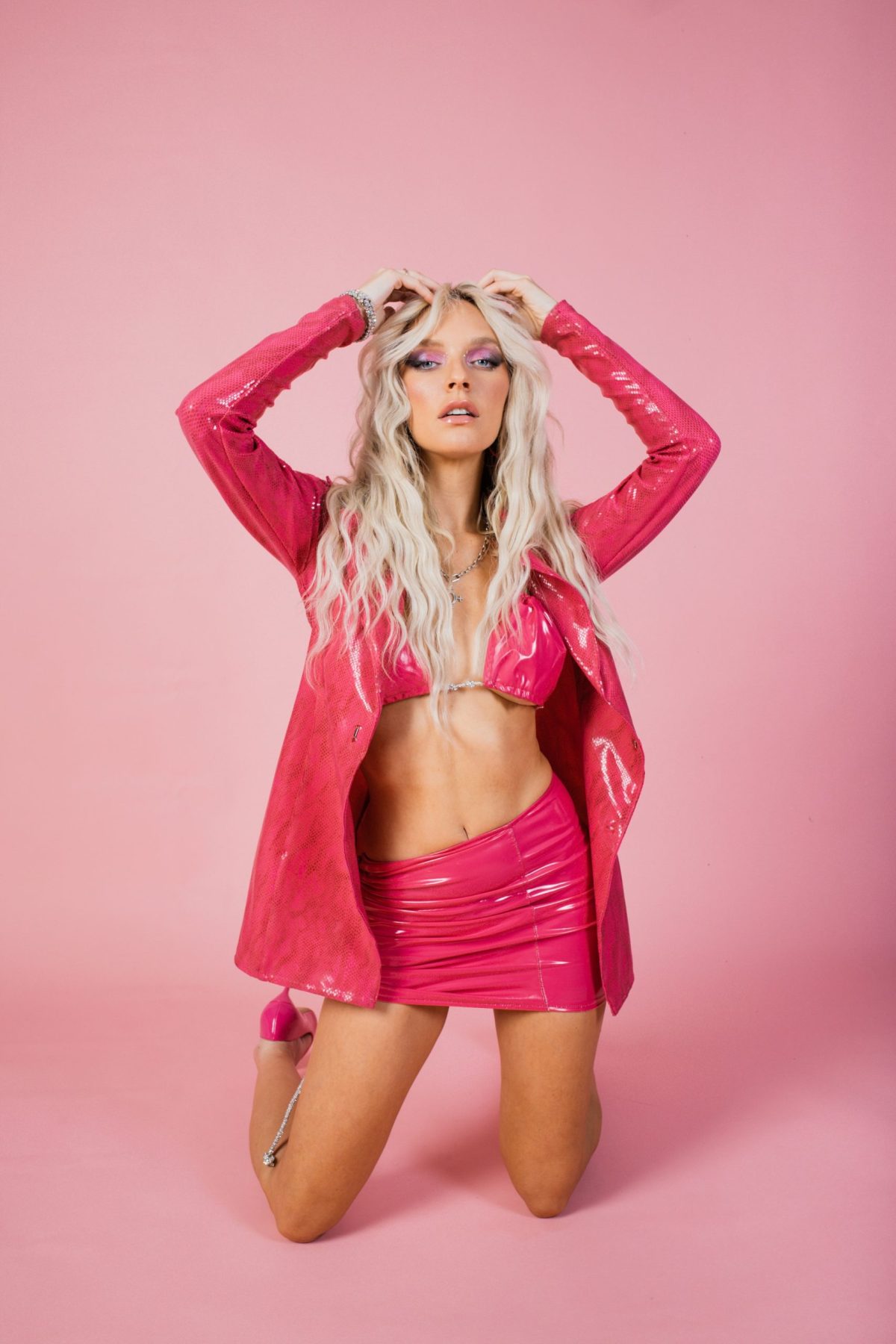
Why do you think there is still a lack of girl-on-girl storylines with happy endings in music?
Oh, my goodness. I feel like there are so many tropes, like the “kill your gays” narrative. I saw a TikTok the other day, and I hope I say this correctly, but it was basically the idea that two women can’t end up happily together without a man involved. Like, the result of misogynist culture.
I think we’re starting to see that shift a little bit and we’re starting to see more stories, like the movie Crush that recently came out, where it’s not a traumatic coming out story or someone ends up dead. We’re starting to see more of that, which is truly exciting.
Ultimately, what do you hope audiences take away from the trilogy?
I think I want the audience to walk away with a sense of hope and joy. I want them, especially queer people, to watch it and feel happy, and maybe a sense of healing by getting to see something that they didn’t have in high school. Also, the idea that you can come back to your first love. Then for audiences that maybe aren’t as accepting, I hope that seeing kind of familiar narrative tropes will hopefully change their hearts.
Watching the videos, the chemistry between you and Tatchi Ringsby looks so natural. What was it like working with them?
Oh my God, it was incredible! Tatchi is actually one of my sister’s friends. I’ve been around them a lot before, but the first music video, “Somebody I F*cked Once,” was the first time where we spent a good amount of time together. We had such a natural rapport with each other.
Just the fact that Tatchi had been such a public person for young queer and nonbinary people on TikTok and had been doing so much for the community, getting together to tell this story that we both felt passionately about and providing representation for people, there was a special energy. We both knew we were doing something that was important. They were so full into the project, which was awesome.
Have you always had a passion for singing and songwriting?
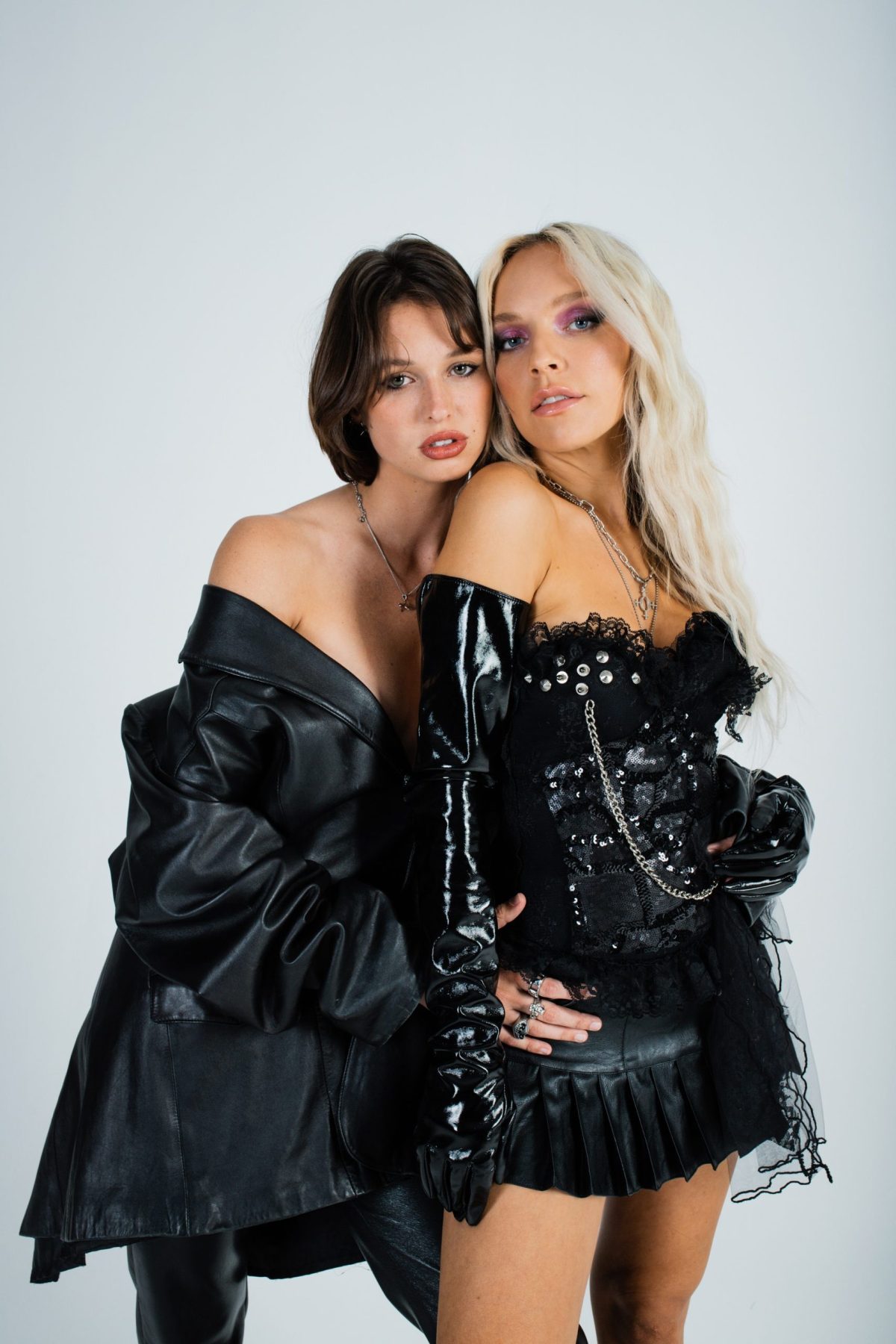
Yes, definitely. I grew up playing bluegrass, which is very different (laughs). Then when I was a teenager, singing and songwriting became more of a coping mechanism and therapy. It wasn’t something that I necessarily thought was going to be my career or something that I wanted to pursue. Then when I was in college studying film and wanting to make music videos, that’s when I realized, “Why don’t I just do both? I’m writing songs for myself anyways.”
You released your first single, “Explosion,” in 2015. How would you say you have evolved as an artist since then?
Specifically, I think my songwriting and just who I am as a musician has evolved a lot. I’ve always had a clear grasp on the visual worlds that I’ve created, but obviously, even that’s evolved. I think in the beginning, I was probably more interested in telling darker stories, and maybe that’s just where I was at. Seeing what the world wants when there’s so much darkness. Now, at this point in my life, just because the story has a happy ending or it’s a little bit lighter, that doesn’t mean it’s less powerful than something that’s dark and heavy. That’s probably how my work has evolved the most.
All the stuff I’ve been writing lately has been lighter, and there’s something to be said about creating art that inspires joy. I think a lot of artists believe they need to be in pain or going through something horrible to be able to tap into that inspiration. It’s almost like a crutch, and for the longest time, I thought that too. I was like, “I can only create if I’m feeling hurt or if someone has broken my heart.” It’s really nice to know that I’m feeling so inspired, even when my life and things are good.
You have talked before about the importance of being a feminist lesbian in the music industry. Why is that significant?
I think everybody, men and women, should be feminists. Now, there are so many people that are on the forefront of what they talk about, but I believe it’s super important to be a feminist in the music industry. Just being a woman in music, you have to have your narrative heard. Those go hand-in-hand.
Did you ever have any reservations entering the music industry as an openly gay woman?
No, I didn’t. In the beginning, it was almost what made me want to try the music industry because there aren’t enough stories or queer songs. If Taylor Swift covered a song that was written by a guy, and she didn’t change the pronouns, that was everything to me. I found myself listening to covers a lot, and I feel that is definitely what inspired me to want to do it. I thought there just wasn’t enough of it.
Do you think that other artists with a platform like yours should be using their voice to promote equality?
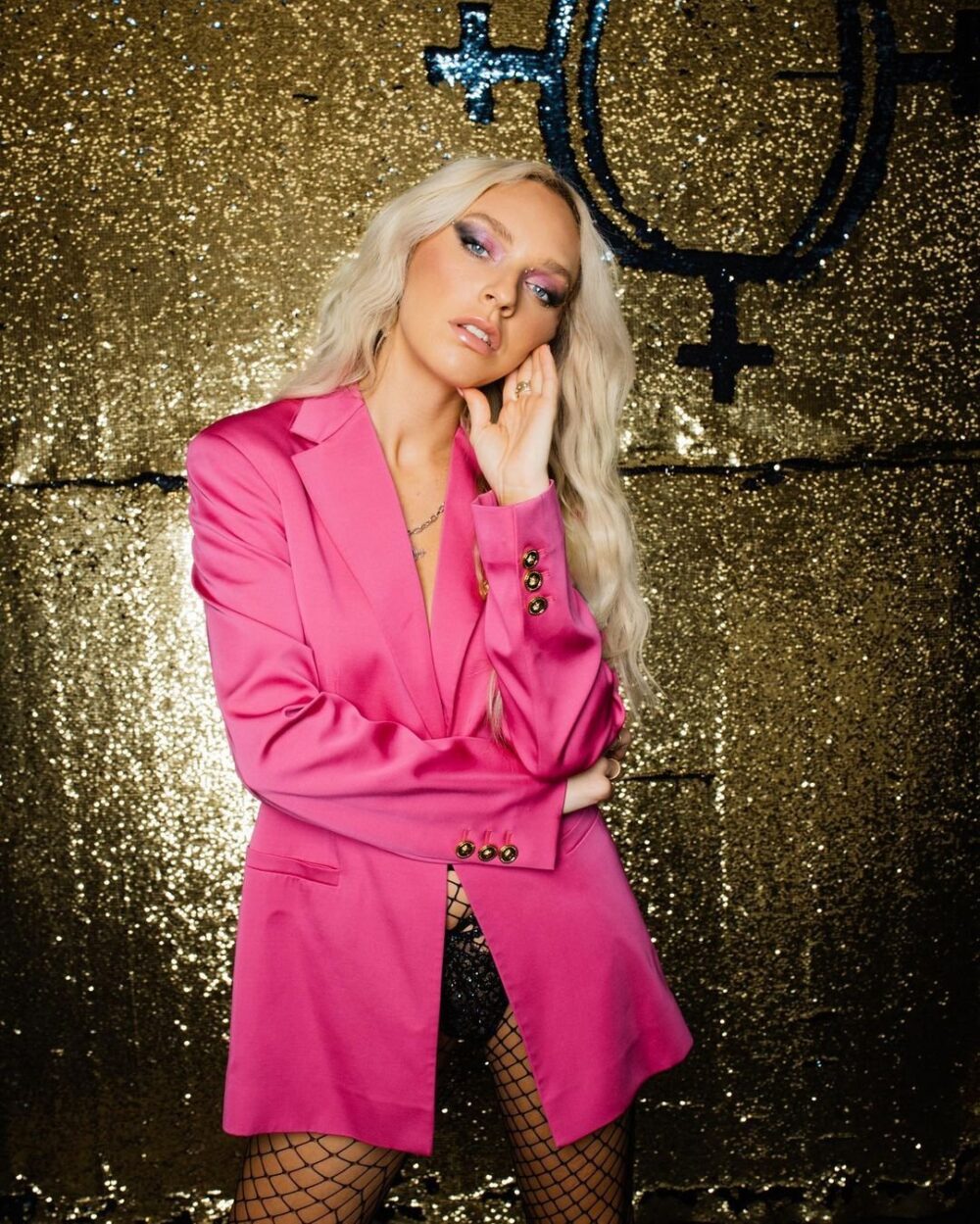
Absolutely. If you have a platform, you have a duty to promote equality.
Next month, you will be performing on the main stage of LA Pride alongside the likes of Christina Aguilera, Anitta, Michaela Jae, and more. How excited are you for that?
I am so excited! Truly, this is my dream. LA is my hometown, and I performed at LA Pride in 2018, but it was on one of the smaller stages on Santa Monica Boulevard. To perform on the main stage where Christina Aguilera is performing too, I’m so excited. I cannot wait to perform all the music, the trilogy songs, and to perform with a full band for the first time. Also, a Pride crowd is the best crowd because the day itself is so celebratory. There’s so much unity and togetherness, and it’s going to be a lovely day.
What does Pride personally mean to you?
To me, Pride is about living my life proudly every day and creating the art that I want to create without thinking about it being received negatively—Holding my girlfriend’s hand wherever I want to go and being proud of who I am.
Do you remember the first Pride event you ever attended?
Yes! It was 2012 when I was in high school, but I wasn’t out of the closet yet. I had a little inkling that I was LGBTQ, but I went as an ally, and I took my little sister who was 9 or 10 at the time. We did the whole rainbow thing, and I remember thinking, “Oh my God.” It was the most amazing feeling, especially being someone who was on the precipice of coming out of the closet. Just seeing the community that I was about to get to be a part of was so exciting.
What are some future goals you hope to achieve as a musical artist?
I would like to build out visual worlds even more and I would love to do a visual concept album. Going on tour, like touring South America, that’s a huge one, and honestly, I would love to turn “Somebody I F*cked Once” into a TV show or film, build out that whole entire concept. I don’t think I would necessarily be in it, but I’d love to direct and produce it. That’s something that I’m working on loosely right now.
Before we wrap up, are there any other upcoming projects or anything else you’d like to mention or plug?
I am working on an EP. That is going to be the next project, which will come out sometime around fall. So, I’m going to start releasing singles leading up to it: six new songs and a whole new visual world.
Stay up-to-date and connect with Zolita by following her on Facebook, Twitter, Instagram, TikTok, and YouTube @zolita, or visit her official website, zolitamusic.com.
Photos courtesy of Jade DeRose
What's Your Reaction?
Denny Patterson is a St. Louis-based entertainment and lifestyle journalist who serves as OFM's Celebrity Correspondent. Outside of writing, some of his interests include traveling, binge watching TV shows and movies, reading (books and people!), and spending time with his husband and pets. Denny is also the Senior Lifestyle Writer for South Florida's OutClique Magazine and a contributing writer for Instinct Magazine. Connect with him on Instagram: @dennyp777.






